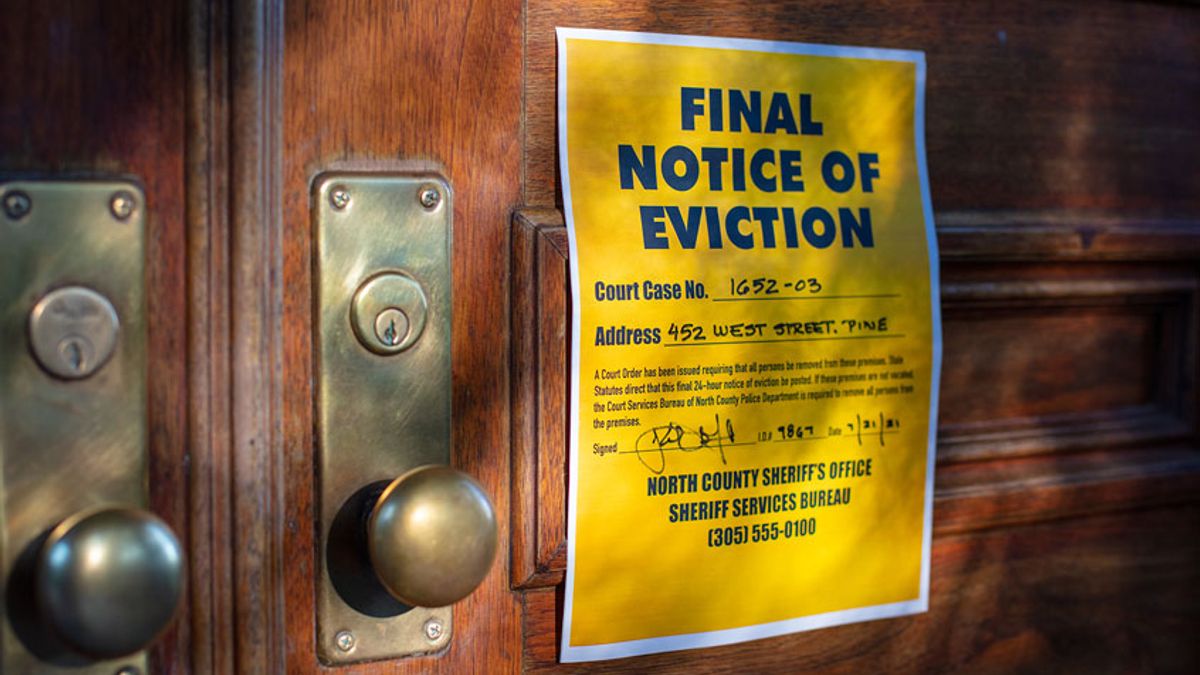When a rental property is deemed uninhabitable or condemned by local authorities, it creates a difficult situation for both tenants and landlords. Tenants are forced to quickly find new housing, while landlords must navigate repairs and lease terminations. This article will explore the process and rights of tenants when their rental home is condemned.
What is Property Condemnation?
Property condemnation occurs when a local authority, such as a city housing inspector, deems a building unsuitable for habitation. This is typically due to significant health, safety or structural issues that render the property unlivable according to local building codes and housing regulations.
Common reasons for condemnation include plumbing problems, structural damage, pest or animal infestations, fire hazards, and missing construction permits. When a property is condemned, it is considered 'unlivable' and tenants can no longer legally reside there until all necessary repairs are completed.
Related: Can You Rent An Apartment While Having A Mortgage?
What Happens to Tenants Immediately After Condemnation?

Once a property is condemned, tenants will be officially notified via a letter from the local authority that they must leave the premises immediately since it is unfit for human habitation. Tenants cannot return except to gather belongings until all required renovations or repairs bring the property back up to code.
For example, if the floor has structural issues, it must be replaced before tenants can safely live there again. Safety is the top priority, so tenants must find alternate housing until repairs are finished.
What are Tenants' Rights During the Condemnation Process?
Tenants facing condemnation have some important legal rights. They must continue paying rent in full until officially notified to leave. After receiving notice, tenants can terminate their lease with the landlord in writing.
Most importantly, tenants are entitled to financial relocation assistance from their landlord, typically equal to up to 3 months rent, to help cover costs of moving to a new residence. Tenants should consult a lawyer to understand local compensation laws specific to their situation.
Does the Lease Automatically Terminate with Condemnation?
When a property is condemned, tenants have the option to terminate their lease agreement by providing written notice to their landlord within 60 days of receiving official condemnation paperwork. However, the lease does not automatically terminate - this is a choice left to tenants on an individual basis.
If tenants choose not to terminate the lease, they still maintain rights as tenants under the lease terms. This can entitle them to financial compensation for losses or additional costs incurred due to early lease termination due to condemnation.
What if Only Part of the Property is Condemned?
If a condemnation only affects part of a rental home or building, either the landlord or tenants can terminate the lease with 30 days notice, depending on the severity of the partial condemnation. Alternatively, landlords may choose to lower the rent amount to match the reduced value of the partially condemned property, or pay for repairs out of pocket.
Tenants still have negotiation rights and could seek compensation for rent decreases or other costs associated with a partial condemnation.
Can Tenants Recover Money for the Remaining Lease Period?
Yes, tenants whose leases are cut short due to full property condemnation are entitled to compensation equal to financial losses directly related to the early lease termination. This includes recovering a prorated refund for remaining prepaid rent as well as any rent differential if market rates for replacement housing are higher than their condemned unit.
Additionally, tenants terminated early due to no fault of their own can claim attorney fees and court costs if needing legal representation during the dispute resolution process with their landlord.
What Happens if Tenants and Landlord Agree to Continue the Lease?
If both tenants and landlords consent, the lease agreement can continue after property repairs are complete from condemnation. However, tenants always retain the right to terminate early if they no longer feel comfortable living in a previously condemned unit.
The landlord must keep tenants informed every step of the way regarding repairs, condemnation status updates, and lease termination options and timelines during rebuilding. With open communication and agreement, tenancies can potentially continue post-condemnation.
Conclusion
Understanding the rights and processes around property condemnation is important for all parties involved when it impacts a rental property. Local regulations may differ but this covers general guidelines for tenant rights, lease terms, compensation, and how to proceed when faced with a condemned rental property situation. With knowledge of applicable housing laws, all parties can make informed decisions on next steps.





